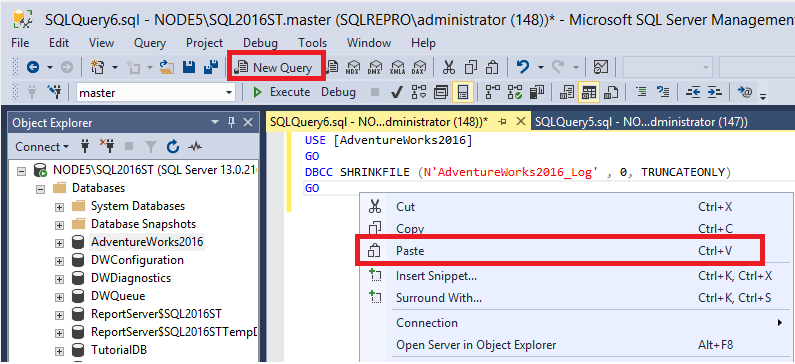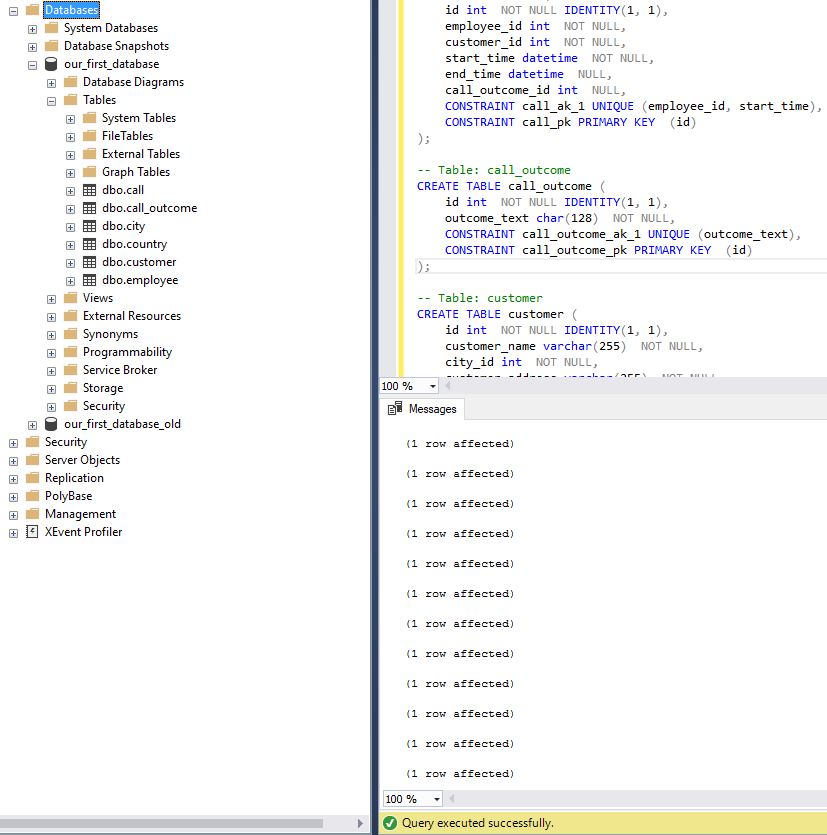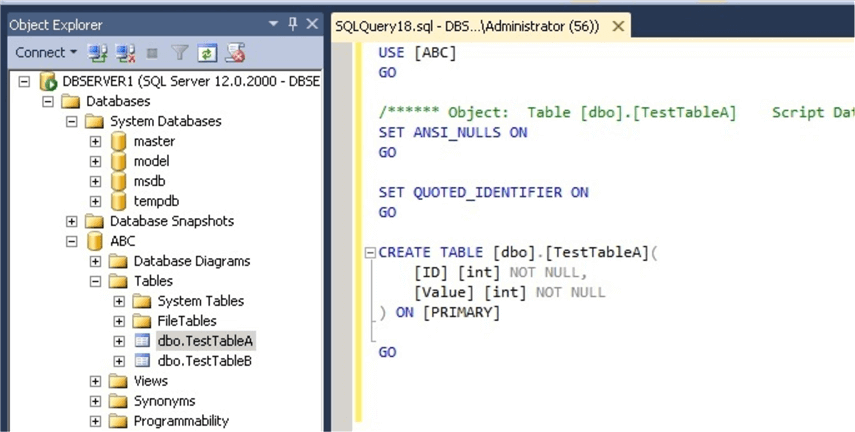Are you looking to enhance your SQL Server scripting skills? Look no further! This article is your ultimate guide to mastering SQL Server scripts. Whether you’re a beginner or an experienced developer, these scripts will help you optimize your database performance, automate tasks, and improve overall efficiency. From basic queries to complex data manipulation, we’ve got you covered. Ready to take your SQL Server scripting to the next level? Let’s get started!
What is SQL Server?
SQL Server is a relational database management system (RDBMS) developed by Microsoft. It is designed to store and retrieve large amounts of data efficiently, while also providing a wide range of features for managing and manipulating that data. SQL Server allows you to create, edit, and query databases using a scripting language called SQL (Structured Query Language).
Definition of SQL Server
SQL Server is a software product that provides a robust and scalable platform for storing and managing relational databases. It acts as a repository for data and enables users to perform various operations such as creating databases, tables, and views, inserting, updating, and deleting data, and executing complex queries to retrieve information from the database. It is widely used by businesses and organizations of all sizes to effectively manage their data.
Features of SQL Server
SQL Server offers a multitude of features that make it a powerful tool for managing databases. Some of the key features include:
-
Data Management: SQL Server provides comprehensive data management capabilities, allowing you to create and modify databases, tables, and views. It supports a wide range of data types, constraints, and relationships for ensuring data integrity.
-
Security: SQL Server offers robust security features such as authentication, authorization, and encryption, which help protect sensitive data from unauthorized access and ensure compliance with regulatory requirements.
-
Performance Optimization: SQL Server includes various features and techniques to optimize query execution and improve overall performance. These include indexing, query optimization, and performance monitoring tools.
-
Scalability: SQL Server is designed to handle large and growing databases. It supports clustering, replication, and scaling out techniques to ensure high availability and scalability.
-
Business Intelligence: SQL Server provides comprehensive business intelligence tools, including reporting, analysis, and data integration capabilities. These tools enable organizations to gain valuable insights from their data and make informed decisions.
-
Integration: SQL Server integrates seamlessly with other Microsoft products and technologies, such as .NET framework, Azure cloud services, and Visual Studio. This makes it easier to develop, manage, and deploy data-driven applications.
Overall, SQL Server offers a wide range of features that cater to the needs of both small and large organizations, making it a popular choice for database management.

Benefits of SQL Server Scripts
SQL Server scripts are a powerful tool for efficient database management and offer several benefits to users. Whether you are a database administrator, developer, or analyst, utilizing SQL Server scripts can greatly enhance your workflow and improve overall database performance.
Efficient database management
SQL Server scripts provide a streamlined way to manage databases. By using scripts, you can automate repetitive tasks such as creating databases, tables, and views, which saves time and reduces the chance of errors. It allows for quick and easy modifications to the database structure, which is especially useful when dealing with large or complex databases.
Improved performance
Optimizing the performance of a database is crucial for ensuring efficient data retrieval and processing. SQL Server scripts allow you to fine-tune your database by creating indexes, optimizing queries, and implementing stored procedures. By utilizing these performance optimization techniques, you can significantly improve query response times, leading to a faster and more efficient database.
Automated tasks
SQL Server scripts enable the automation of various database tasks, eliminating the need for repetitive manual work. You can schedule scripts to run at specific times or events, such as backups, data imports, or report generation. This automation not only saves time but also reduces the risk of human error, ensuring consistent and accurate results.
Enhanced security
Security is of utmost importance when it comes to managing databases. SQL Server scripts allow you to implement and enforce security measures such as user authentication, authorization, and encryption. By using scripts, you can ensure that your database remains secure and that only authorized users have access to sensitive data.

Common SQL Server Scripts
When working with SQL Server, there are several common scripts that you will frequently use to perform various database operations. Familiarizing yourself with these scripts can greatly enhance your productivity and enable you to efficiently manage your databases.
Creating a database
Creating a database is one of the fundamental tasks in SQL Server scripting. The script for creating a database typically specifies the database name, file locations, and other options such as initial size and growth settings.
Creating tables
Tables are used to store data in a structured manner within a database. The script for creating a table specifies the table name, column names, data types, constraints, and relationships with other tables.
Inserting data into tables
To populate a table with data, you need to use the script for inserting data. The script specifies the table name and the values to be inserted into each column. You can insert data into a table by specifying values explicitly or by selecting data from another table.
Updating records
To modify existing data in a table, you can use the script for updating records. The script specifies the table name, the columns to be updated, and the new values. You can also use conditions to update only specific records that meet certain criteria.
Deleting records
To remove unwanted data from a table, you can use the script for deleting records. The script specifies the table name and optional conditions to specify which records should be deleted. It is important to exercise caution when deleting records, as this operation cannot be undone.
Selecting data
To retrieve data from one or more tables, you can use the script for selecting data. The script specifies the columns to be selected and the table(s) from which to retrieve the data. You can also apply conditions and sorting to narrow down the results.
Joining tables
When you need to retrieve data from multiple tables based on related columns, you can use the script for joining tables. The script specifies the tables to be joined and the columns on which the join should be performed. Joining tables allows you to combine data from different tables into a single result set.
Creating views
A view is a virtual table that is based on the result of a query. To create a view, you can use the script for creating views. The script specifies the view name, the query on which the view is based, and any additional options such as column aliases or permissions.
Creating stored procedures
Stored procedures are sets of SQL statements that are stored in the database and can be executed as a single unit. To create a stored procedure, you can use the script for creating stored procedures. The script specifies the procedure name, the SQL statements to be executed, and any input or output parameters.
Creating triggers
Triggers are special types of stored procedures that are automatically executed in response to certain database events, such as insert, update, or delete operations on a table. To create a trigger, you can use the script for creating triggers. The script specifies the trigger name, the table on which the trigger should be applied, and the SQL statements to be executed when the trigger is triggered.
By mastering these common SQL Server scripts, you can efficiently perform a wide range of database operations and effectively manage your data.

Leave a Reply